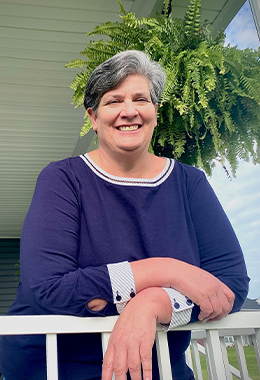Empowering Kentucky’s Substance Misuse Prevention Workforce

John Broadus has worked for three years in youth and family services, including within the juvenile courts system. Now working in primary prevention, he is project director for SAMHSA’s Partnerships for Success prevention grant through Seven Counties Regional Prevention Center in Louisville, Kentucky. As project director, his focus is building coalitions within at-risk communities, particularly communities of color.
“A lot of my technical assistance [TA] is working with parents, schools, youth services, and other community stakeholders on how to provide effective substance misuse prevention for youth,” Broadus explains. Vaping, underage drinking, and opioid misuse are the biggest substance use problems he encounters within the urban communities he serves. “We sometimes hit barriers on how to talk to youth and what effective, evidence-based prevention really means.”
Prevention specialists such as Broadus have learned how to address these issues, bring together community stakeholders, and strengthen their prevention efforts through trainings offered by the Kentucky Department for Behavioral Health, Developmental and Intellectual Disabilities (KYDBHDID) and led by Prevention Solutions@EDC.
In March 2019, more than 100 prevention specialists from across the state took part in “Strengthening Technical Assistance Techniques in Your Practice,” a two-day, customized training led by EDC. This training was part of EDC’s ongoing work with the state of Kentucky to help strengthen its prevention workforce and fill a significant gap. These specialized TA skills—including how to identify and address problems, adapt knowledge to practice, and implement solutions to meet clients’ needs—aren’t always covered in a college or university education.
“New college graduates come to us with good foundational knowledge in public health or social work,” says Patti Clark, program manager for KYDBHDID. “But they’re not always prepared to apply those concepts and determine the prevention needs in their communities.”
PClark.jpg

Clark had consulted with EDC in the past on several initiatives, including developing her state’s substance misuse prevention plan. She knew Prevention Solutions@EDC would bring the expertise and programming needed to help train her statewide prevention workforce in delivering effective TA.
“The staff enjoy learning from EDC,” Clark says. “The training has greater impact as it’s coming from a national subject matter expert. We appreciate EDC’s ability to bring their experts, experience, and perspectives to us. It makes our communities stronger because they’re getting better services and education from folks who have been trained by Prevention Solutions@EDC.”
After attending EDC’s in-depth training, Broadus says he was better prepared to provide technical assistance to his community coalitions—on topics ranging from evaluating needs to planning an approach and implementing a strategy. He learned how to support the state’s community partners to bring substance misuse prevention best practices into their schools and communities.
“One of the biggest things I took from the training was that it’s really important, as we provide information and education services to our communities, to be conscious of partners who may have their own ideas of what prevention is,” Broadus observes. “And sometimes it takes a while to break down barriers and build relationships, to help people in our communities understand the pillars of effective prevention.”
Addressing the Challenges of a Pandemic
When COVID-19 suspended in-person trainings, PreventionSolutions@EDC continued working with Kentucky virtually. The webinar learning event “Best Practices in Virtual Meeting Design and Delivery” supported the state’s prevention specialists in integrating virtual training methods into their work. Regional Prevention Center Director Chris Sparks says the webinar helped him provide remote trainings—and teach others how to conduct programs remotely—in the counties he serves.
“We’ve been promoting the evidence-based Too Good for Drugs program, working with schools and communities,” says Sparks, director of Substance Use Prevention Services for the Pennyroyal Regional Prevention Center in Hopkinsville, Kentucky. “We’ve provided technical assistance to train community members to be able to teach that program. When COVID hit, we helped them switch over to teach the program virtually. The EDC webinar was a good thing to show us how to do training and technical assistance in a different way and adapt.”
Understanding workforce needs is critical to the state’s life-saving prevention efforts, especially as the pandemic has made everything more challenging. To work toward that goal, the state of Kentucky is working with Carol Oliver, director of Prevention Solutions@EDC, on a workforce development plan.
“Kentucky’s opioid death rates, among the highest in the nation, had been dropping, but they’ve gone back up since COVID,” Clark notes. “In addition, we had a high turnover rate with our prevention specialists. EDC helped us identify areas of need within our workforce and provide the specific skills trainings to help our prevention specialists do the greatest good in their communities.”
Broadus says he appreciates the opportunities his state leaders, working with Prevention Solutions@EDC, provide to further develop his technical assistance skills.
“At every regional or state meeting, we always touch on some aspect of technical assistance,” Broadus says. “Whether we’re providing TA to minority, rural, suburban, or urban communities—the state always provides training that focuses on those very targeted areas of prevention. That’s really helped me grow as a prevention specialist.”